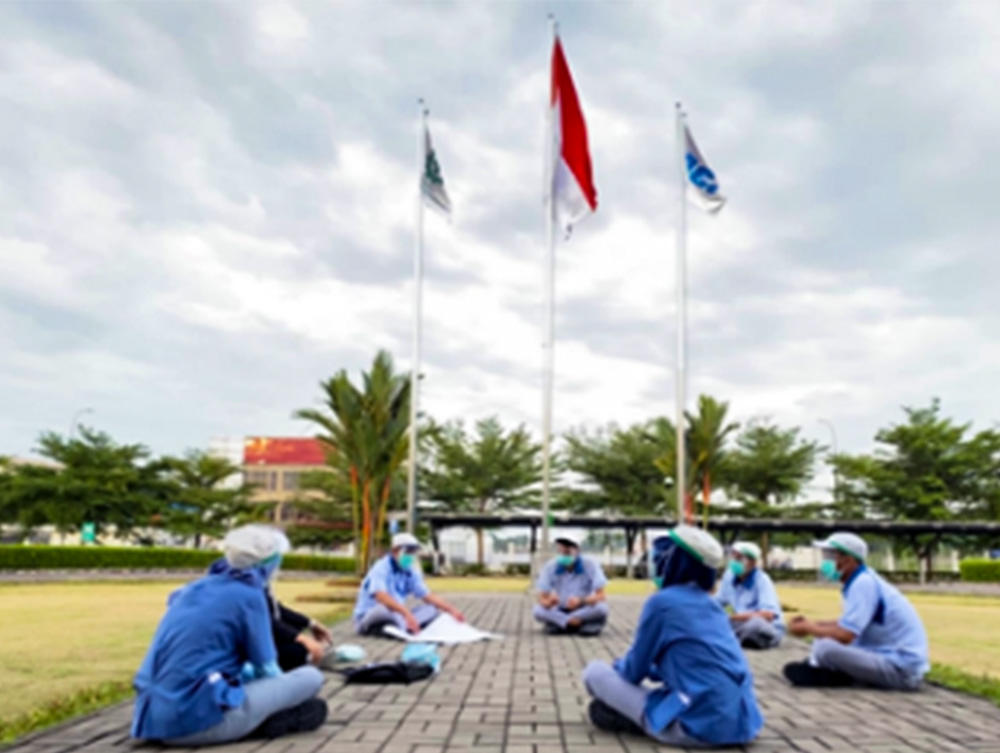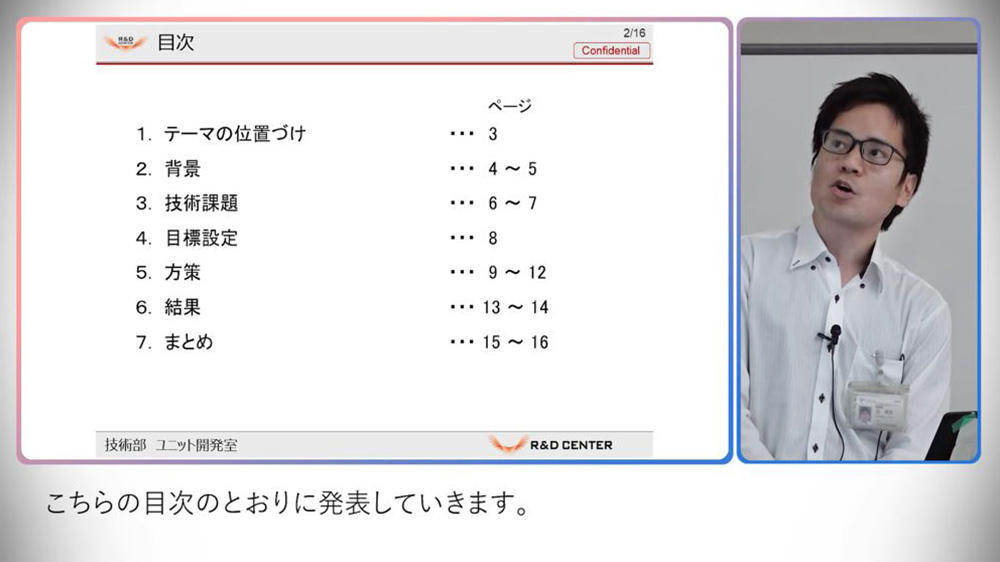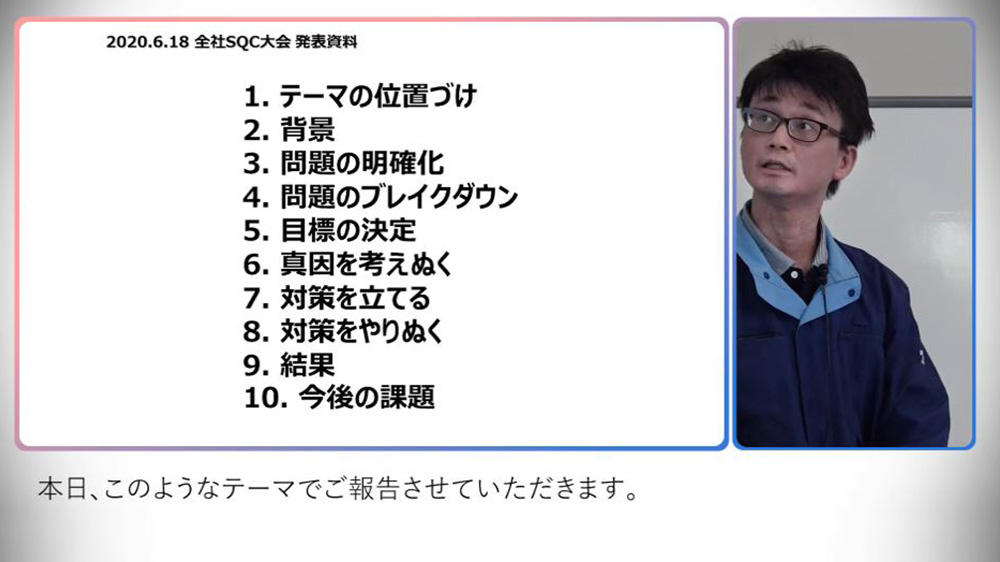The Story of Sakichi Toyoda
Sakichi Toyoda, the founder of Toyota Industries Corporation, possessed a strong ambition to contribute to society from his days as a youth. He had devoted his 63-year-long life to invention.
Regarding quality as one of its material issues, Toyota Industries practices monozukuri (manufacturing) that quickly responds to the diverse, ever-changing needs of customers.
| Quality Vision Each and every member of the Toyota Industries Group makes sure to build in quality with ownership (Jikotei Kanketsu) at their own workplaces and positions to supply appealing products/services that exceed the expectations of customers around the world with safe and reliable quality. |
|---|
Carrying on the spirit of founder Sakichi Toyoda that “A product should never be sold unless it has been carefully manufactured and fully tested in the commercial trial, with completely satisfactory results,” Toyota Industries strongly believes that quality is the lifeblood of a company. Under this belief, we have formulated our Quality Vision as our philosophy in ensuring quality that forms the basis of our operations.
Toyota Industries strives to maintain and improve the total quality of our corporate activities, which encompasses not only “product quality” but also “marketing quality” and “management quality.” “Product quality” is embodied in the safety, eco-friendliness, durability, ease of use and workmanship of our products, while “marketing quality” entails excellent sales and service in addition to these attributes and “management quality” further enhances our overall corporate image and brand strength in terms of all of these attributes.
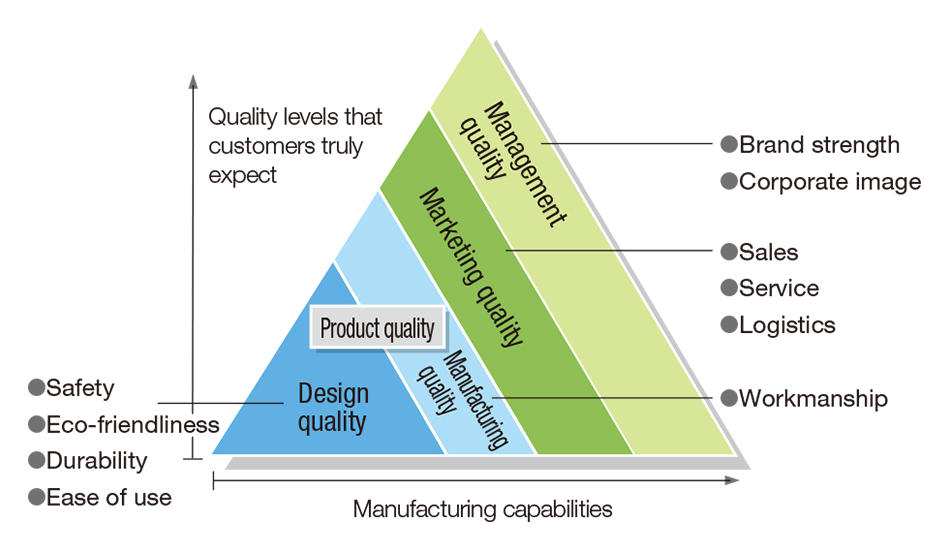
To achieve the goal of the Quality Vision, we issue the Quality Guidelines, which identify priority quality-related issues to be implemented in each fiscal year, to all production bases in and outside Japan and engage in quality assurance activities accordingly. The implementation status of these guidelines is reviewed by top management at the Quality Functional Meeting chaired by a senior executive officer serving as the head of the Production Headquarters*1 for identifying additional issues and devising countermeasures. Issues raised are followed up at meetings of the Company-wide Council of Heads of Quality Assurance Departments chaired by the head of the Quality Control Department*1.
*1:As of March 31, 2021
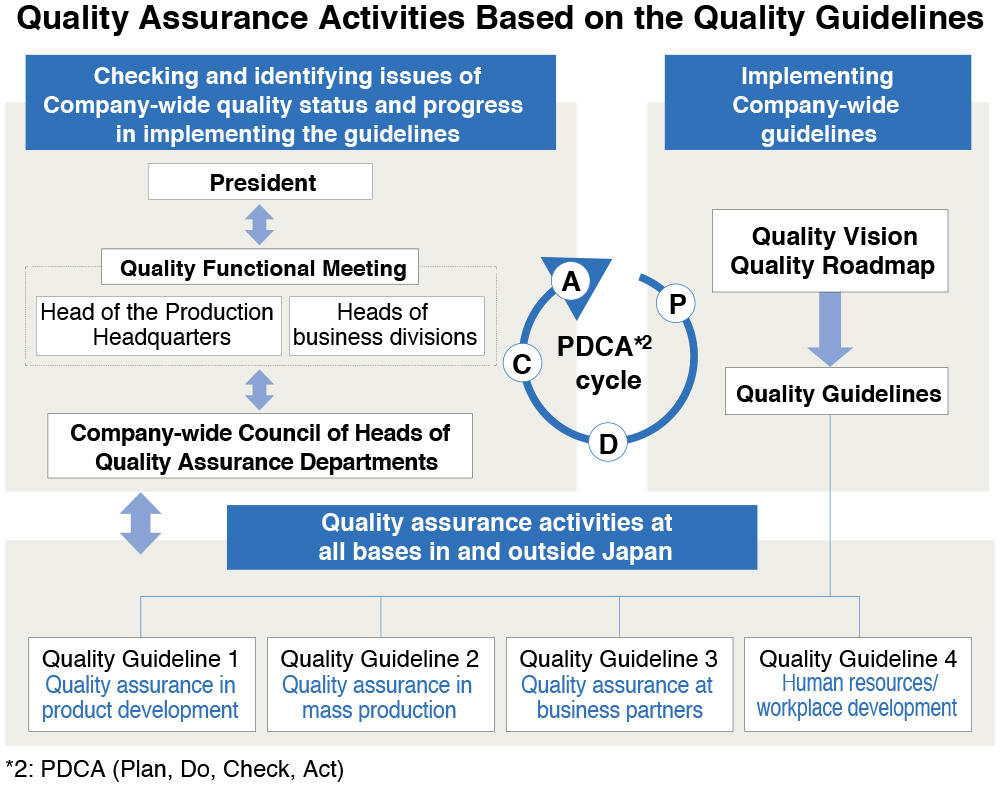
Toyota Industries undertakes product development that meets customer expectations by capturing market needs and understanding how our products are actually used by customers.
At Toyota Industries, development of a new product entails defining specific goals to incorporate quality in every stage from product planning and design to production preparation, production, sales and after-sales services. We perform a design review (DR), which allows a product to proceed to the next stage only when a responsible business division head examines and approves whether the product has reached the target quality level.
Additionally, we are proactive in obtaining ISO 9001 certification, an international standard for quality management systems, and IATF 16949, an international standard for automotive quality management systems, throughout our businesses.
■ISO 9001 certification: Acquired by 20 out of the 24 production subsidiaries (as of July 2020)
In order to provide products that are safe for customers to use, each business division conducts risk assessment during a DR to identify, assess and respond to all risks.
We are also making Company-wide efforts to promote the development of human resources who can assess two factors integral to risk assessment, namely, the likelihood of an occurrence of a hazard and severity of damage caused by it.
■Rate of performing risk assessment on applicable products (non-consolidated): 100% (fiscal 2021)
If a defect is found in a product after its launch, the Quality Assurance Department of the responsible business division takes the lead in making a swift response to eliminate the concerns of customers and implementing measures to ensure non-recurrence of the same defect. In particular, a defect causing considerable inconvenience to customers is recorded as a critical quality issue and reported to the president. At the same time, we have in place a system to follow through on customer response as well as measures to prevent recurrence. Accordingly, we examine and identify the cause by going back to its development process. We implement countermeasures both from the process and technological aspects and revise our new product development process as necessary. Through these measures, we strive to thoroughly avoid the recurrence of the defect in subsequent models. Additionally, we make efforts to prevent the occurrence of defects in all products we develop and manufacture in the future by taking measures throughout Toyota Industries.
Since improving the quality of our products requires concerted efforts with our business partners in and outside Japan,
we are strengthening joint quality assurance activities with major business partners.
Toyota Industries provides systematic quality education to all employees to help them acquire quality assurance skills needed in actual operations. We have been developing human resources who think, learn and act on their own. We have also been promoting quality control (QC) circle activities and creative proposals to establish a vibrant workplace along with promoting the development of human resources who can take a scientific approach to quality assurance by using statistical quality control (SQC) techniques and big data analysis.
